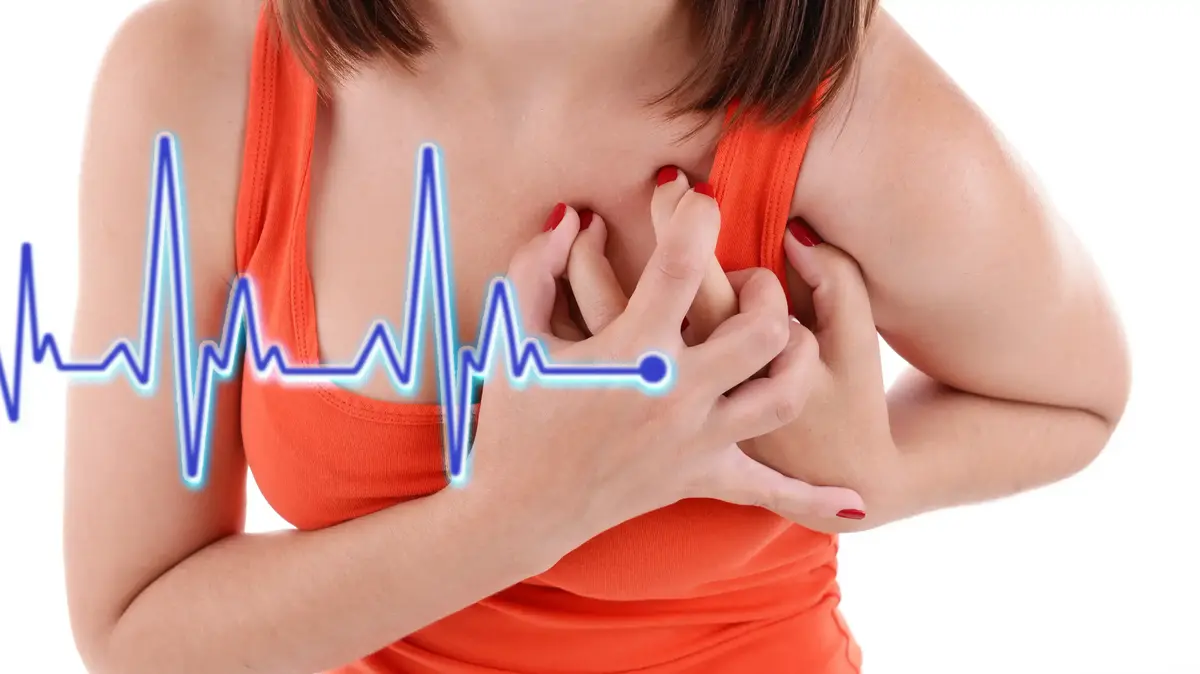How does a heart attack feel?
The signs that everyone must know
The familiar scene where a person feels chest pain and then collapses is one type of heart attack.
But it can also look completely different.
Prof. Kobi Shaham explains the signs that should concern you, why it is important to get to the emergency room quickly with any abnormal signs, and how to treat them.
Iris Cole
01/07/2022
Friday, 01 July 2022, 06:45 Updated: 06:53
Share on Facebook
Share on WhatsApp
Share on Twitter
Share on Email
Share on general
Comments
Comments
Prof. Kobi Shaham explains the signs of a heart attack that should worry you and when it is important to get to the emergency room quickly (Walla system!)
Every year 10,000 Israelis have a heart attack - a frightening and shaky experience, and of course dangerous.
Prof. Kobi Shaham, director of the intensive care unit in the cardiology department at Ichilov Hospital, was a guest on the "Specialist Clinic" podcast to explain the warning lights we must be aware of, and how to prevent heart attacks.
And let's start with the most important bottom line - how does a heart attack feel: "In fact, when we experience a heart attack, this condition is caused by a sharp drop in the blood supply to the coronary arteries that supply blood and oxygen to the heart muscle. The anterior that supplies the blood and oxygen to the heart, "explains Prof. Shaham," as everywhere in the body, once there is a decrease in blood and oxygen, we will feel a sharp pain that appears, because the tissues experience the state of lack of oxygen supply. "
The classic pain attributed to a heart attack is that of a squeezing pain - the person feels a load or weight that presses in the center of his chest or on the left side, and this pain can radiate to the left hand.
However, "we know today that there are different manifestations of pain in different populations, and this classic occurrence does not have to be in all populations," Prof. Shaham explained.
For example, there is a significant difference in heart attack symptoms between men and women.
"Men talk more about the classic manifestation of chest tightness radiating to the left, in women the symptoms are less typical - upper abdominal pain, back pain, jaw pain, a feeling of shortness of breath," he explained.
So when should you worry?
According to Prof. Shaham, in any case where a person experiences chest pain or abnormal discomfort, which is not usually felt, and certainly if it is accompanied by shortness of breath, sweating, nausea or vomiting, and it does not pass - help should be sought.
"Once this thing lasts beyond a few minutes and does not pass, we are talking about a time span of 5-10 minutes. If it lasts longer than that and does not pass or intensify, a medical examination should be sought as soon as possible."
In case a person experiences such an abnormal or alarming event the recommendation is to first call an ambulance, as “People who experience a heart attack, certainly a heart attack, are at increased risk for fatal arrhythmias, which can lead to cardiac arrest, and only when the patient is hospitalized and monitored. "An arrhythmia can be given the immediate treatment that is by an electric shock, and avoid a situation where they degenerate into a state of fatal arrhythmia."
And this recommendation is especially important,
Time is critical.
is very.
Ambulance (Photo: Reuven Castro)
Time is critical in the event of a heart attack on two levels.
"The longer the time that the heart does not receive oxygen - the greater the damage caused, and the ability of the heart to recover from the damage caused, even when given the best treatment by catheterization and medication, decreases as we move away from the time the event occurred," explained Prof. Shaham. In addition, as more time passes and we do not treat, the risk of complications, such as arrhythmia that causes ventricular fibrillation and cardiac arrest, increases. "
Most often a heart attack comes as a complete surprise
Although most of us try to be connected to our health, heart events on the way down catch us unprepared.
"A lot of times it's a surprise, the majority of patients who come to me did not think they would find themselves in the hospital a few hours earlier," said Prof. Shaham, adding that almost all people, except people with known heart disease who come earlier because they Knowing the symptoms, it catches by surprise.
The best treatment, Prof. Shaham explained, is prevention.
"Recognize what the risk factors are, which significantly increase the risk of heart events," and here are a number of factors that are treatable.
A significant risk factor for example is hyperlipidemia, which can be detected by a routine blood test.
If this happens, it is important to treat it, usually by changing diet or weight loss, and often medication is also needed.
High blood pressure is also a significant risk factor.
"Blood pressure, which we call the silent killer, is something we often do not feel, and it has built up over the years and can significantly increase the chance of a heart attack."
Therefore, once a year it is very important to do a test for lipids in the blood, and at each visit to the doctor - a measurement of blood pressure.
From the age of 40 it is important to do a fasting sugar test once a year.
30-40 minutes, 3-4 times a week will keep your heart going.
A woman walks (Photo: ShutterStock)
In addition, in order to maintain the heart, it is important to maintain a "healthy diet, smoking cessation and regular and controlled exercise - it does not have to be running, it is also enough to walk 30-40 minutes, 3-4 times a week," said Prof. Shaham.
However, it is important to note that even those who do sports and maintain a healthy diet may have a heart attack, since "heredity is an influential factor," Prof. Shaham explained.
"It is one of the most important risk factors, someone who has a first-degree family member - father, mother, brother - who had heart disease at a young age, it is perhaps one of the most significant risk factors for the occurrence of a heart event," said Prof. Shaham.
For these people, maintaining a healthy diet and exercise may not completely prevent the heart event, but it will certainly delay it a few years ahead, causing the severity of arterial stenosis to be less.
More on Walla!
This phenomenon causes a quick and sudden death.
This is what is important to know about her
To the full article
In conclusion, we will return again to the bottom line with which we opened.
Heart events can have different symptoms, and in any case of abnormal feeling, it is important to get tested.
"Some people arrive after a few days and we belatedly identified that they had a heart attack a few days ago," said Prof. Shaham.
"By and large, anything that is unusual and different from what we know or pain we have experienced in the past - should not be ignored. As adults on the one hand we know what pain we experienced during flu, toothache or upset stomach, but on the other hand people have a desire to repress the situation and think." It does not happen to me 'or' maybe it will pass', we sometimes see people who come many hours after the pain appeared in the hope that it will pass, "he said, adding that there are many tragedies because of this desire to repress.
"Do not wait, if you feel something unusual - get a medical examination immediately."
health
Tags
Heart Attack
Cardiac Arrest









